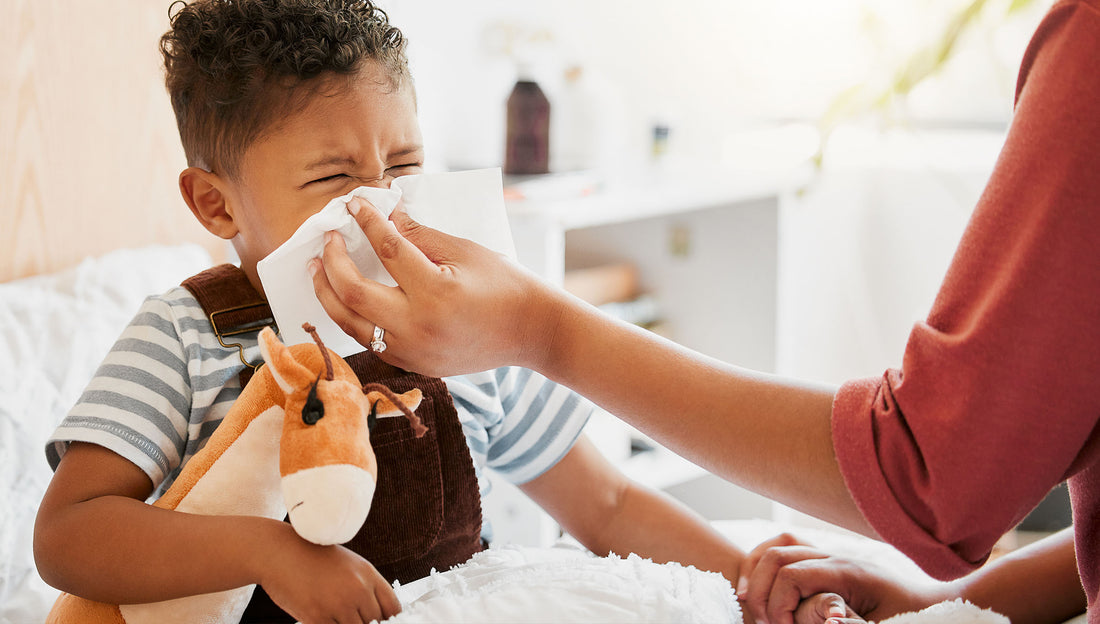It’s the beginning of March, and that means a few things…
- The official start of spring is a few weeks away (did somebody say spring break?)
- The weather is warming up in some parts of the country (sorry New Hampshire, you have a while to wait)
- Allergy season is here (DUN DUN DUUUUN!)
Today, we’re discussing seasonal allergies in children… The sneezing, coughing, itching, and overall nastiness that hits every spring as a result of pollen from flowers, trees, grass, weeds, and more. Can someone hand over a tissue? We haven’t even started this article, and we already have a runny nose! Yuck! 🤧

1) What causes seasonal allergies?
While there are many culprits to blame for seasonal allergies, pollen certainly is high on the list. Different plants produce pollen at different times of year, however, spring is prime time for flower pollen and the yellow tree pollen you may see blanketing yards, lakes, and sidewalks.
So how do sticky pollen particles and mold spores cause the phenomenon we know as seasonal allergies? Seasonal allergy symptoms occur when airborne irritants (allergens) enter the body through the mouth, nose, and eyes and cause an allergic reaction.
Simply put, your body mistakes particles like pollen for something dangerous and tries to fight back.

2) How do you know if a child has seasonal allergies?
Seasonal allergy symptoms can be similar to common cold symptoms, although allergy discomfort often lasts for longer periods (multiple weeks). Issues may include cough, sore throat, stuffy/runny nose, sneezing, itchy eyes, etc. It’s important to note that seasonal allergies often run in families, so if parents/siblings suffer, kids likely will too.
Seasonal allergies aren’t just a nuisance… They can also cause serious issues for kids such as trouble in school and/or misbehavior as a result of poor sleep, an increase in ear and sinus infections, and more.
It may sometimes be obvious if a child is suffering from seasonal allergies given the timing and symptoms above… However, the only way to truly know what a child is allergic to (and to what extent) is to speak with a provider and consider getting an allergy test.

3) What can be done to lessen/prevent symptoms?
Let’s talk about ways to make allergy season just a little less miserable… Providers may recommend some combination of the following:
- Limiting time outside during peak allergy season
- Boosting immune support with the proper vitamins/minerals (check out this Allergy Relief Bundle)
- Closing windows and relying on AC instead to filter air
- Rinsing off after being outside (taking showers/baths at night before bed)
- Using saline to clear nasal passages
- Taking over-the-counter antihistamines and/or decongestants
- Considering prescription sprays and medications, and in serious cases, allergy shots
Did you know Renzo’s has a complete Allergy Relief Bundle with everything your kid’s immune system needs to win the fight against pesky seasonal allergies? Start springtime on the right foot with a complete Multivitamin, Vitamin C, and Probiotic.
Renzo's Vitamins provides general recommendations, not to be construed as medical advice.

